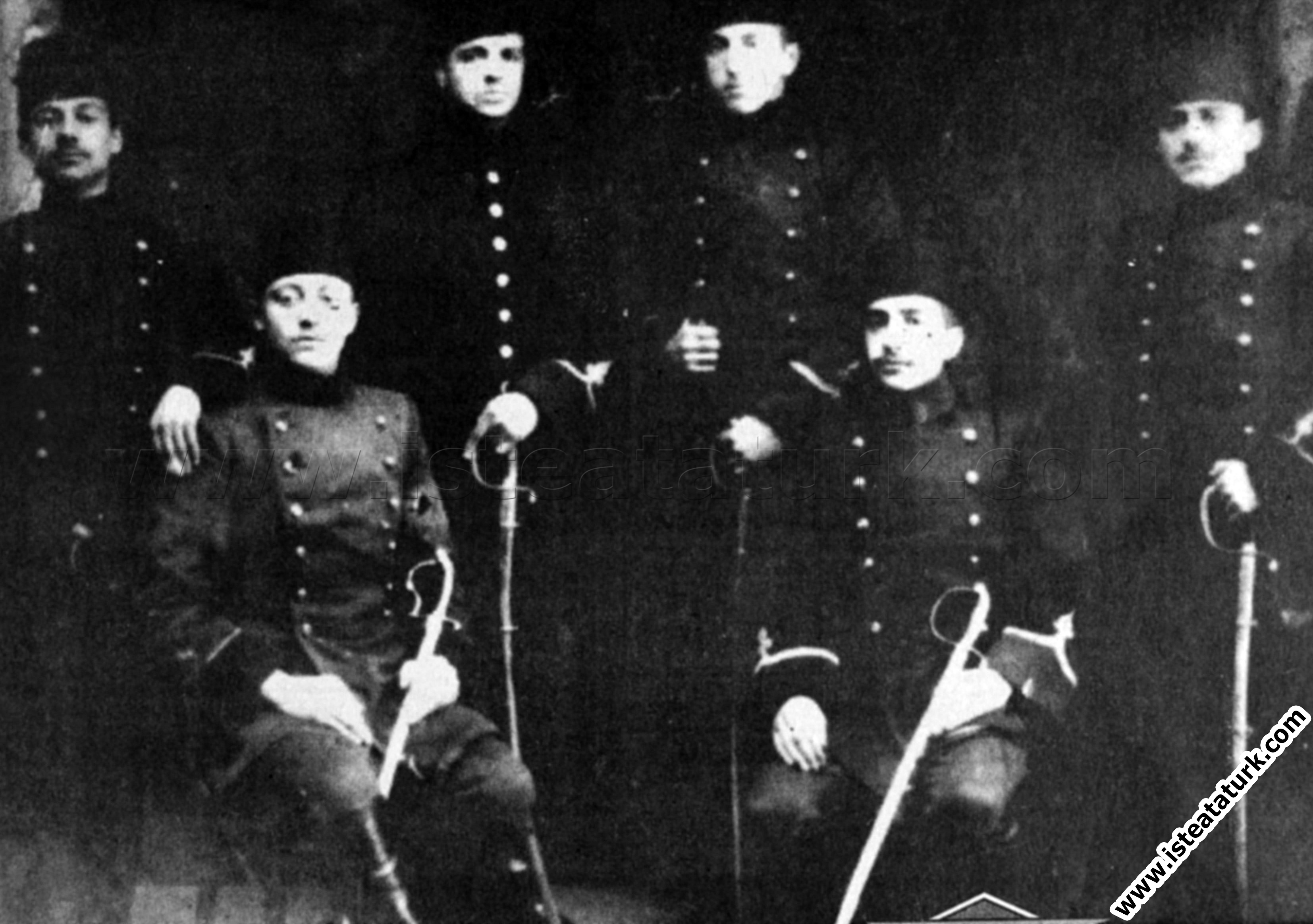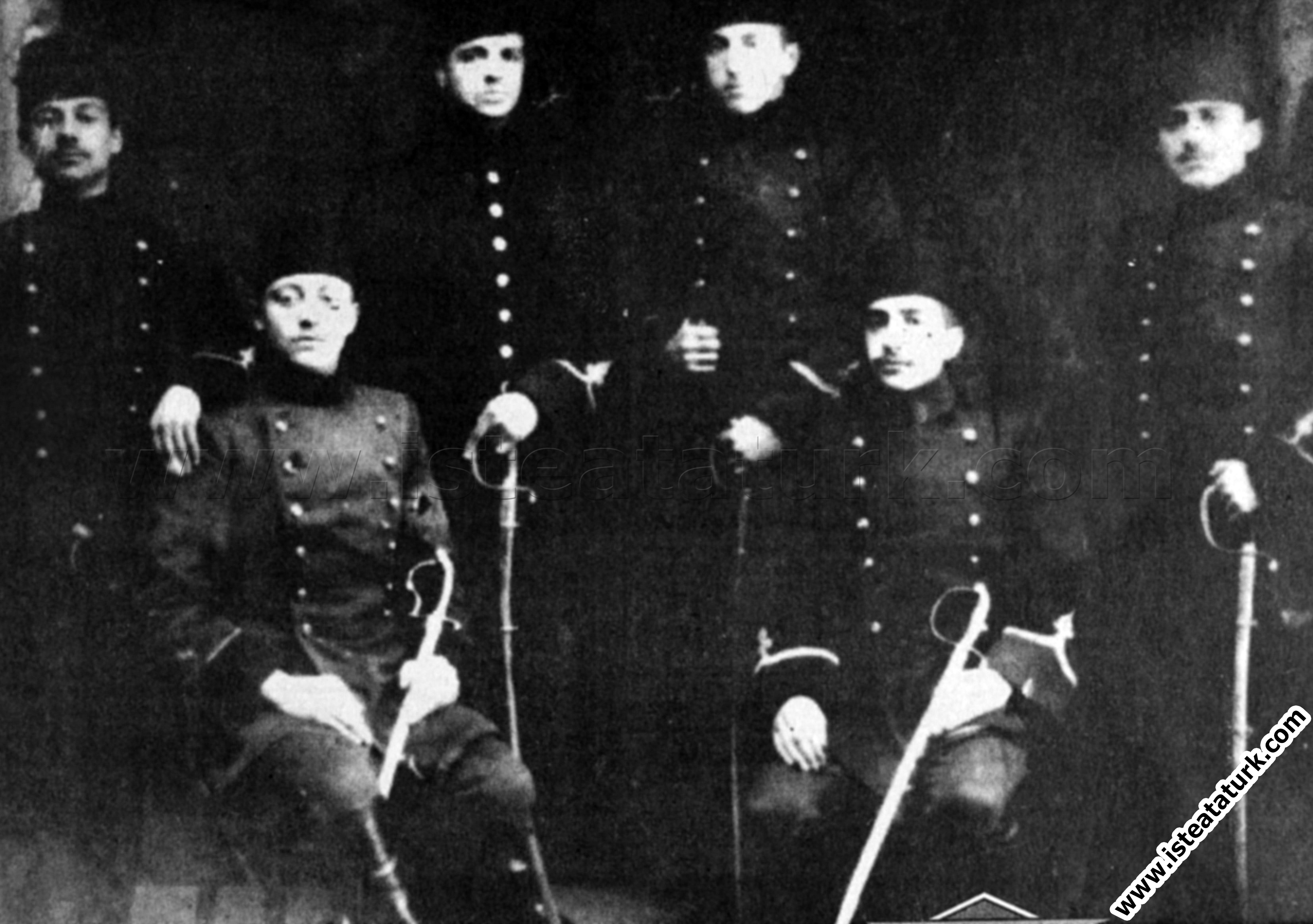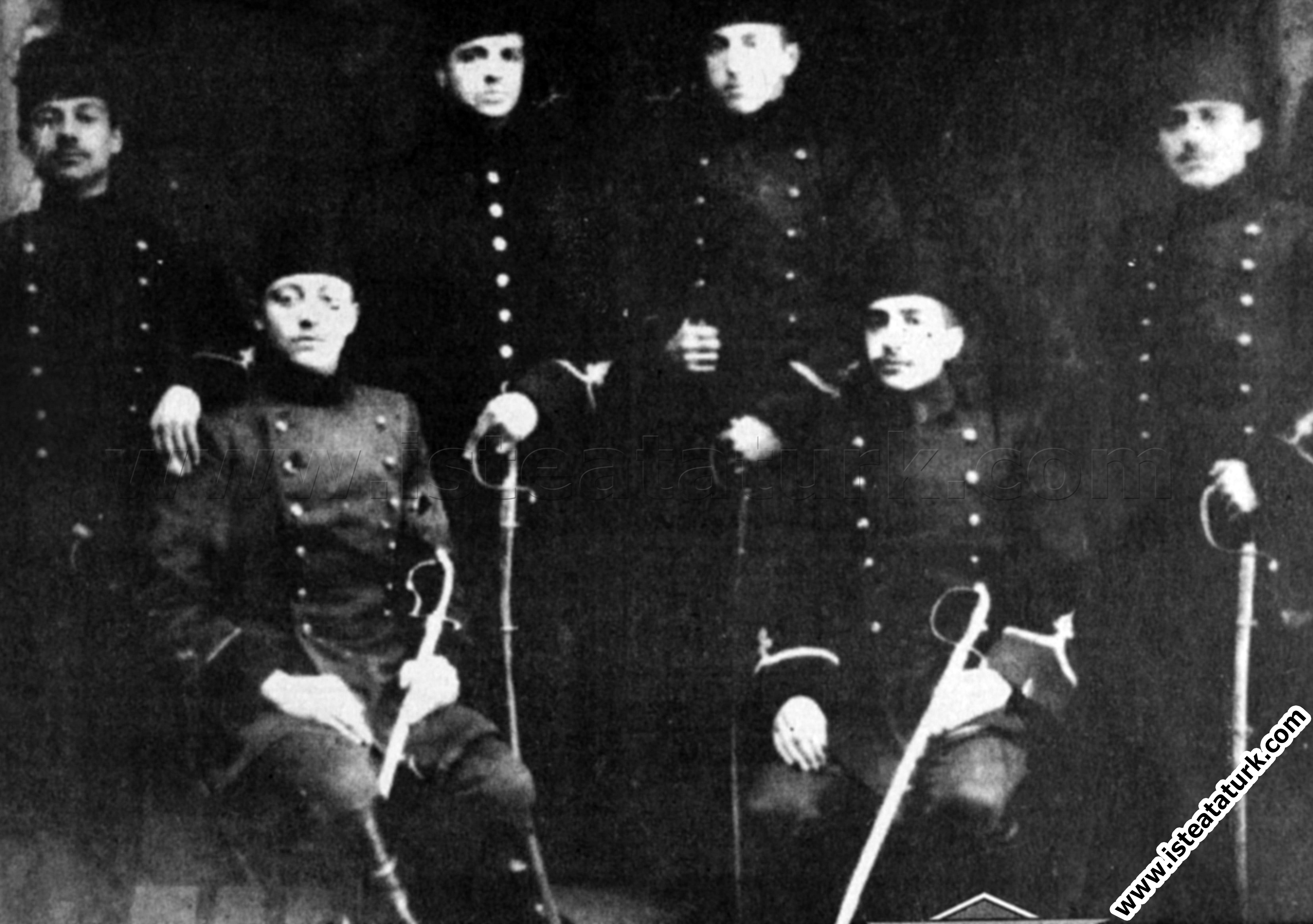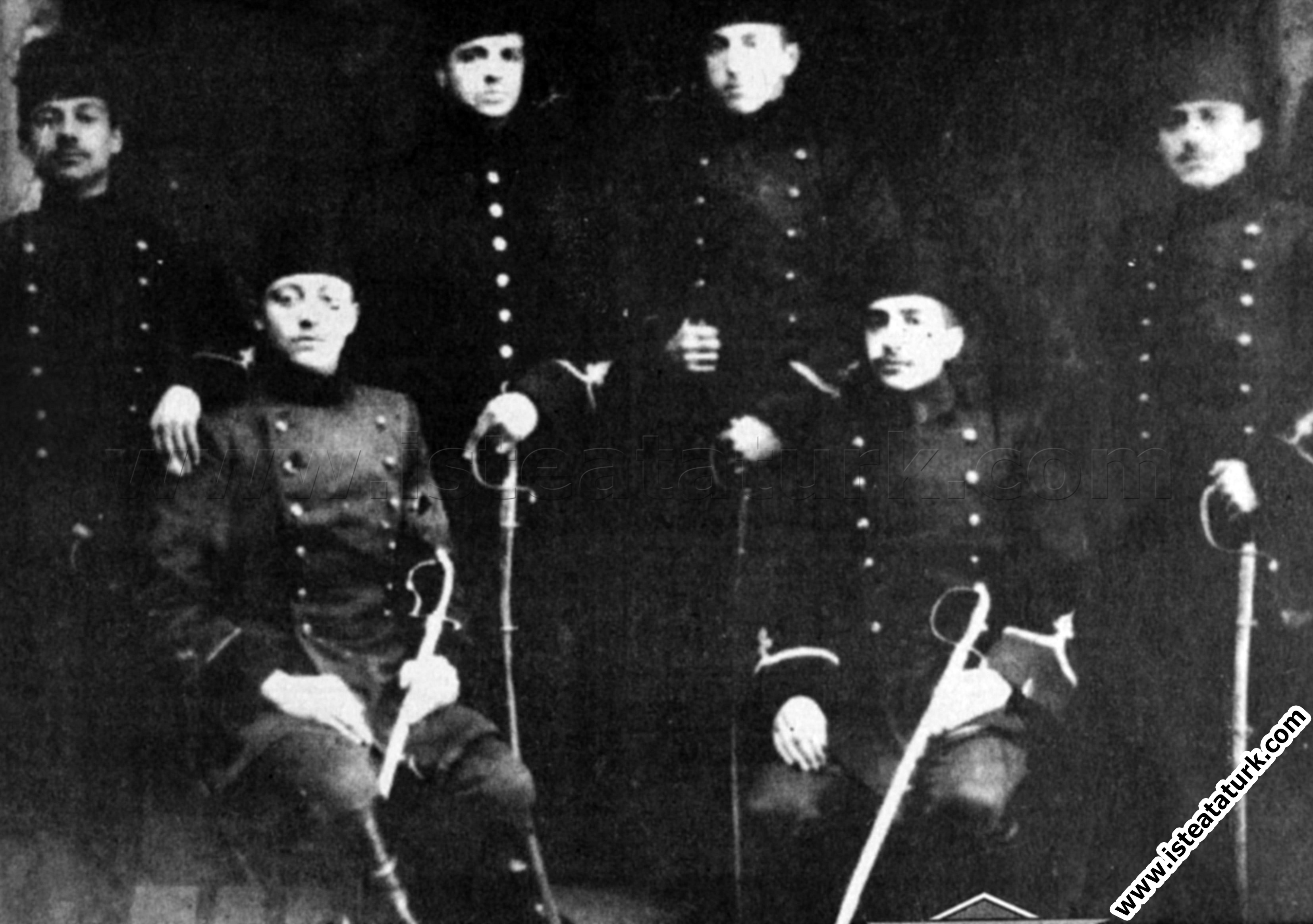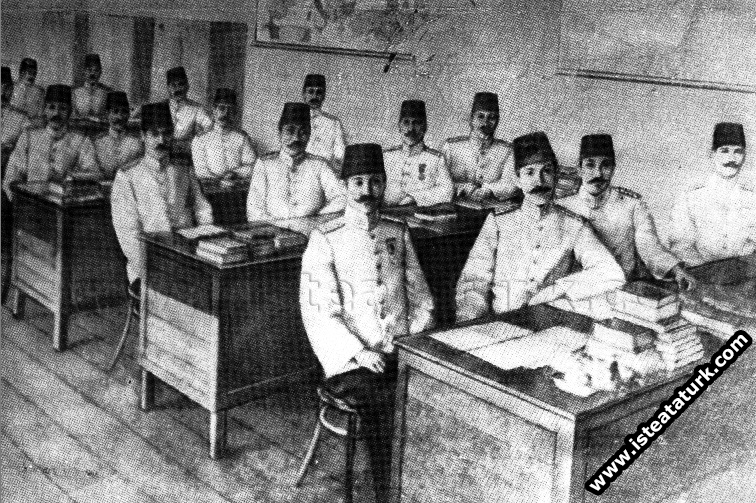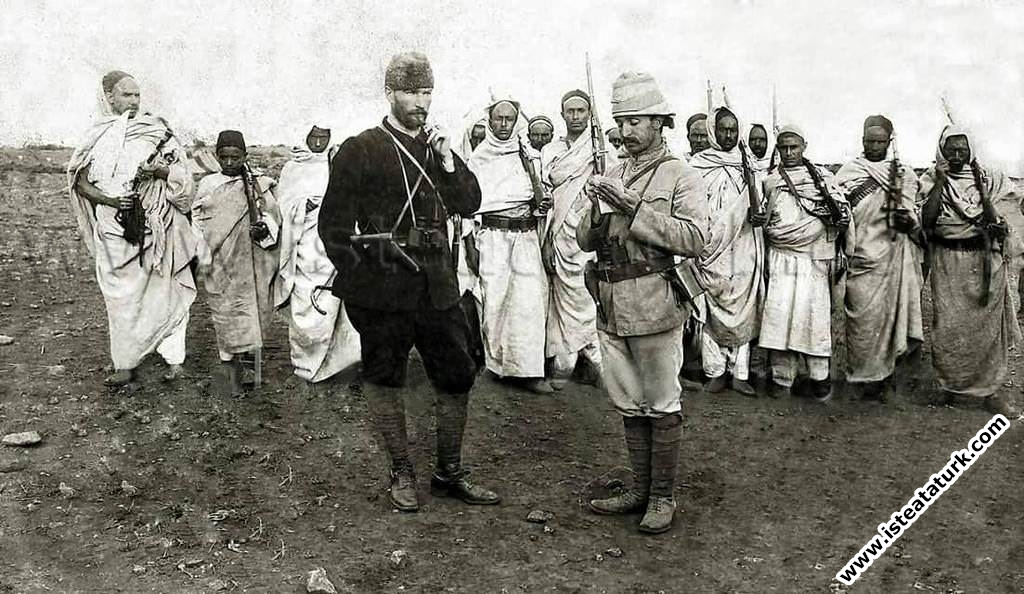
Mustafa Kemal in Tripoli
Character Size
MUSTAFA KEMAL IS IN TRIPOLI
Tripoli
The Italians suddenly landed in Tripoli in 1911 to seize Ottoman Africa. We had very little force there. We could not send soldiers from the sea because our navy was weak, and from the land because Egypt was under British occupation.
Mustafa Kemal went to Tripoli via Egypt. He attacked Tobruk for the first time with the forces under his command. He had the Italians stopped, and then took the Derne Command. In this command, Mustafa Kemal's military art value attracted the attention of those who went there. He was prudent and calculated. He would sacrifice any pretentiousness, whatever was right to do according to the situation.
One of the doctors described how he knew himself in a desert headquarters:
“The commander is sick, he is in bed, he will accept you as such, sorry,” they said. Mustafa Kemal was sitting in the tent on his cot. Its furniture consists of a portable table, two chairs, and a wolfskin on the floor. He has blood in one eye. He was breathing heavily. As I shook his hand, I also felt that he had a fever. With difficulty, we were able to send him to be treated in a hospital for a few days.” one
Painful and Troubled Days
Mustafa Kemal was enduring everything, he was going to wait for the day when he would take that administration in person. He was never intimidated by poverty, hardship, or disease.
Dr. The following memory of İbrahim Tali Öngören 2 is the most vivid example of this.
“I was in Kevkeban in Yemen when the war started between the Italians who attacked Tripoli in 1911 and the Ottoman Empire. It had been two months since I had completed my regular tenure, and the big moves were over. Officers were gradually being discharged. My turn would come in a month. I took leave a month ago, telling the Commander-in-Chief that I was going to the African war zone. I also asked permission for the late Doctor Operator Hüseyin Pasha, who had to stay in Yemen for two more months. On the night of the day when the Italian ship Aretoza, which lightly bombarded Hudeidah for the first time, was fired, we set off for Aden with a small British-flagged ship of the Korean-Indian partnership. Within a day or two, we left there on the British India ferry. We applied to the Ottoman Commissariat to Suez. He recommended us to an Egyptian committee helping Tripoli. We set out in Alexandria with the group we formed of Ali Çetinkaya and Deputy Yusuf Şetvan, Captain Hüseyin from Benghazi and some other volunteers. After Sellum, we arrived at Derne headquarters one evening at the beginning of October, with minor setbacks such as going astray one night, enduring thirst for a day or two, and being caught in the rain for the last few days. We were greeted by Enver Bey and Nuri Conker, Reşit Bey, son of Marshal Fuat Pasha, and other officers.
We had heard in Alexandria that Enver Bey passed away three weeks ago and Mustafa Kemal Bey ten days ago. Enver Bey had undertaken the task of commander. We learned that Nuri Bey was the Chief of General Staff and Reşit Bey was his adjutant. I wouldn't know anyone. Our first acquaintance started there. The next day I visited the Commander in the morning. He gave me the Benghazi district health mission. I asked him about the military situation regarding my duty. He told on the map; I took note. He said that Commander Mustafa Kemal Bey was in Seyit Abdulaziz on the eastern front. One day later, I took a guide and went to visit him. I sent word with his aide. Aide:
'Commander is in an uncomfortable bed, he will accept you as such, he asks you not to worry,' he said and took me to a sharp tent. Mustafa Kemal Bey is sitting on his cot. Its furniture consists of a traveling table and two traveling chairs, a wolf skin on the floor! There is blood in one of the eyes of Mr. Commander. He is breathing heavily. As I shook his hand, I felt that he was a little hot. I introduced myself and immediately proceeded to measure the temperature. To me:
'Welcome, where do you come from, how was the trip?' he was asking.” 3
1 ATAY, Falih Rıfkı, Babamız Atatürk, 2. Baskı, Doğan Kardeş Matbaacılık, İstanbul 1966.s. 34-35.
2 İbrahim Tali Öngören (1875-1952), Askerî doktor, 1919’da Mustafa Kemal ile beraber Samsun’a çıktı. Elçi, Milletvekili.
3 BANOĞLU, Niyazi Ahmet, Nükte ve Fıkralarla Atatürk, Garanti Matbaası, İstanbul 1967,s. 47-49.
Source: Atatürk’ten Gençliğe Unutulmaz Anılar, Ahmet Gürel, Mayıs 2009
